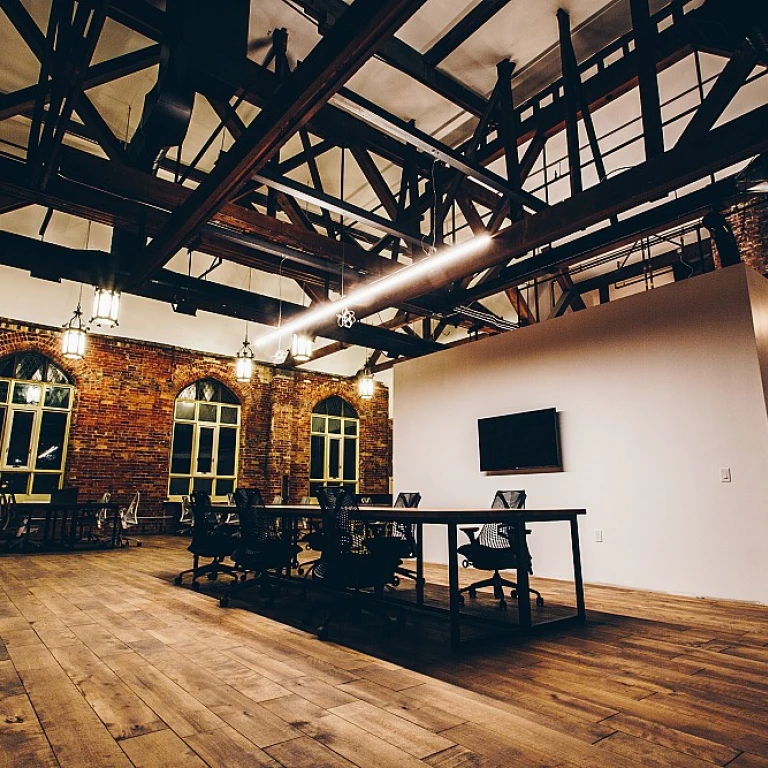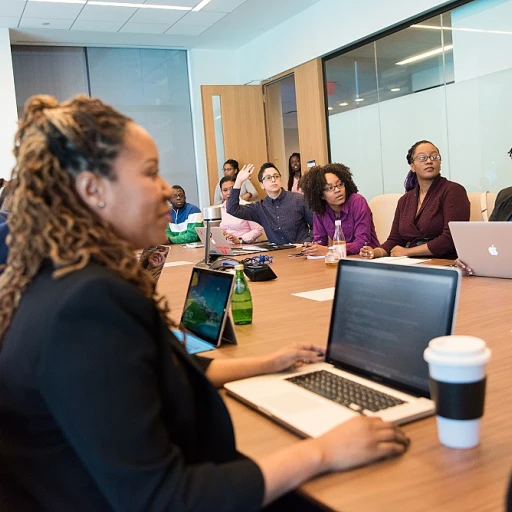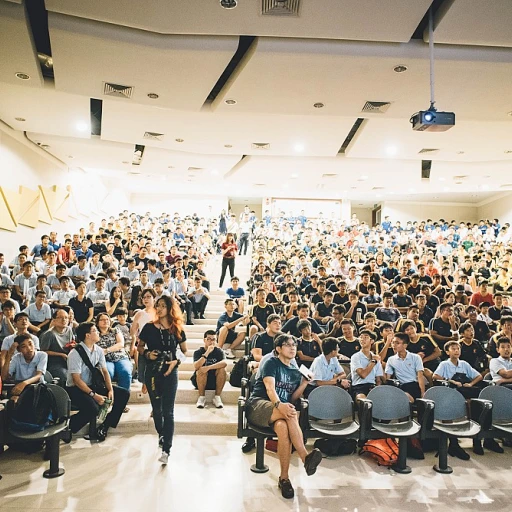Embracing Flexible Work Arrangements
Flexible Work Models for a Better Work-Life Balance
In recent years, many Arabian Emirate companies have adopted more flexible work arrangements to accommodate the evolving needs of their employees. With the changing nature of work environments, it is paramount for companies to provide options that enhance both productivity and life balance. Flexible work models such as hybrid working and remote working have become increasingly popular.
- Hybrid Work: This model combines remote work with traditional office settings, offering employees the chance to maintain face-to-face interactions while enjoying remote flexibility. Hybrid working allows companies to optimize office space and reduce overhead costs.
- Remote Work: The advances in technology enable employees to work from virtually anywhere, promoting a greater work-life balance. Remote working is particularly beneficial for employees who need to manage personal responsibilities along with their professional duties.
These flexible arrangements not only contribute to higher employee satisfaction but also allow businesses to attract a wider talent pool. Evidence from various studies suggests that employees with flexible work options report higher levels of productivity and engagement.
Many companies are utilizing
artificial intelligence to manage these flexible working arrangements efficiently. AI-powered solutions can facilitate desk booking and activity-based work environments, offering a robust framework for adapting to these new working models.
As the future of work continues to transform, embracing flexibility will be crucial for companies to remain competitive and relevant. By aligning with modern expectations, organizations can foster a more dynamic workplace culture that meets the needs of both the business and its employees.
Leveraging Technology for Enhanced Collaboration
Leveraging Innovative Tools for Improved Collaboration
The continuously evolving technological landscape in the Arabian Emirates presents abundant opportunities for companies to transform their office dynamics. With advances in artificial intelligence and cloud-based solutions, businesses are reimagining their work environments. By integrating these modern tools, companies can foster seamless collaboration amongst teams, regardless of location.
Hybrid working models are swiftly changing the nature of traditional office layouts. With an increase in remote work, businesses are discovering new ways to effectively connect teams spread across different geographies. This shift has led to a rise in activity-based and desk booking systems, allowing employees to choose their preferred way of working that best suits their needs.
To further improve productivity and enhance the employee experience, companies are adopting tech-driven solutions that cater to both remote work and in-office scenarios. Smart devices and cloud platforms enable real-time collaboration and communication, breaking down geographical barriers and promoting inclusivity. By leveraging these technologies, the workforce can maintain high productivity levels while achieving better work-life balance.
Moreover, adopting these tools is not just about enhancing efficiency; it also demonstrates a commitment to change management. Companies that embrace digital transformation are better equipped to meet the challenges and opportunities of the future work landscape. By doing so, they not only support flexible work policies but also enhance the overall work environment.
As organizations in the Arabian Emirates continue to innovate, it's essential to consider the role of technology in fostering a connected and dynamic workplace. By leveraging intelligent systems, businesses can ensure a sustainable and efficient model that benefits both management and their teams. Discover more on how businesses are evolving technologically by exploring innovative trends in office management in the Arabian Emirates
here.
Cultural Sensitivity and Inclusivity in the Workplace
Fostering a Diverse Work Environment
In today's multifaceted world of work, Arabian Emirate companies are taking strides towards creating an inclusive and culturally-sensitive workplace. This shift not only reflects the growing diversity of the region but also opens up avenues for enhanced productivity and employee satisfaction. As companies continue to develop flexible work arrangements and leverage technology for collaboration, cultivating cultural inclusivity becomes equally essential.
Promoting this inclusivity involves several aspects:
- Embracing Diversity: A diverse team brings a spectrum of perspectives that can foster creativity and innovation. Employers are recognizing the importance of this by ensuring their recruitment and management practices celebrate and value the different backgrounds and experiences of their employees.
- Cultural Sensitivity Training: Many companies are now investing in cultural sensitivity training for their workforce. By equipping employees to understand and respect each other's differences, businesses create a harmonious and respectful work environment where everyone feels valued.
- Flexible Work Environments: The changing nature of the workplace, with elements like flexible work and hybrid work models, supports diverse teams by allowing individuals to contribute in ways that best suit their circumstances. This flexibility maximizes employee engagement and productivity.
Aligning these efforts with
digital transformation initiatives can further bolster inclusivity. For instance, through virtual workspaces and remote working capabilities, teams can connect and collaborate across borders, fostering a truly global working model.
Nevertheless, the transition to culturally-sensitive and inclusive workspaces is an ongoing journey. By continually adapting leadership styles, as discussed in other sections, and embedding cultural inclusivity at every level, Arabian Emirate companies are setting a robust framework for future work that is both dynamic and socially responsible.
Sustainable Office Practices
Establishing Eco-friendly Workspaces
Arabian Emirate companies are progressively recognizing the significance of sustainable office practices in bolstering productivity and pertinent life balance. Implementing green policies not only benefits the planet but also fosters a healthier work environment for employees.
One of the approaches undertaken is the incorporation of eco-friendly materials and energy-efficient solutions. Optimizing natural light and ensuring proper ventilation can enhance the overall work atmosphere. Reduce, reuse, and recycle initiatives help in minimizing the environmental footprint of workplace activities.
Another strategy involves the adoption of activity based work settings, facilitating flexible work models like hybrid work and remote work. This shift in work environment reduces the necessity for large, constantly occupied spaces, leading to significant energy savings and minimal resource consumption.
Companies are also employing desk booking systems that allow employees to efficiently utilize shared spaces, therefore contributing to more sustainable office management. These practices encourage a fluid change management approach, aligning with the changing nature of work.
Moreover, promoting virtual collaboration tools and remote working policies reduces commuting habits and the overall carbon emissions associated with daily work routines. This transition to flexible working arrangements supports not only environmental sustainability but also employee well-being, as discussed in relation to well-being initiatives.
Sustainable office practices in the Arabian Emirates are demonstrating how shifting work environments can benefit both employees and the environment, supporting the evolving future of work.
Employee Well-being and Mental Health Initiatives
Fostering Holistic Employee Support
The changing nature of work demands companies across the Arabian Emirates to prioritize employee well-being and mental health initiatives. With the rise of remote work and hybrid working models, it has become essential to create work environments that support flexible working and meaningful life balance.
Implementing successful employee well-being strategies involves recognizing the diverse needs of employees working in various settings – be it traditional office setups, remote workspaces, or a hybrid combination. Companies must deploy effective change management techniques to ensure teams remain cohesive and productive, irrespective of their work environment.
In modern workplaces, flexible work arrangements allow employees to choose the ways they work, whether it's through activity-based methods or desk booking systems. These approaches not only cater to employee preferences but also contribute to enhanced productivity and satisfaction by reducing stress factors associated with traditional work settings.
Moreover, embracing mental health initiatives can lead to significant improvements in employee experience. Companies are finding innovative ways to offer mental health resources such as counseling services, stress-relief programs, and mindfulness sessions. By prioritizing these efforts, employers can foster a supportive culture that values employees as integral components of the organization.
As leadership styles adapt to modern challenges, the focus is on empathetic management that aligns with a supportive work environment. By acknowledging the importance of both personal and professional growth, leaders set a precedent for a more connected and motivated team.
In conclusion, by embedding employee well-being and mental health as core components of their strategy, Arabian Emirate companies can ensure a sustainable future workforce equipped to navigate the dynamic landscape of the future work environment.
Adapting Leadership Styles for Modern Challenges
Transformative Leadership for the Rapidly Evolving Workplace
In the dynamically changing landscape of the Arabian Emirate's work environments, leadership demands constant adaptation. As companies shift towards remote and hybrid working models, the role of leaders must also evolve to meet these new challenges. This transformation encompasses employing a myriad of strategies to ensure teams remain productive and employees are engaged, regardless of their physical workplace.
Modern leaders need to harness technology effectively, fostering seamless communication and collaboration within their teams, much like leveraging technology-enhanced collaboration addressed earlier. They must also exhibit cultural sensitivity and inclusivity, ensuring a diverse and respectful workplace that values each employee's contributions. As workplace dynamics shift, it's imperative for leaders to balance traditional management practices with the innovative approaches required for future work environments.
Flexible working arrangements and remote working are reshaping leadership roles. Leaders now need to perform change management by being more empathetic, fostering a work-life balance, and promoting transparency within their teams. Implementing sustainable office practices and prioritizing employee mental health further exemplifies effective leadership today.
With the growing prevalence of desk booking systems and activity-based working, leaders should encourage a results-oriented work culture, allowing employees the autonomy to choose the work environments that best suit their needs and enhance their performance. By adopting a forward-thinking approach, leaders can inspire their teams to embrace change and enhance the overall employee experience.
As the future work landscape continues to evolve, success hinges on the ability of leaders to be adaptable, empathetic, and technologically savvy. An informed embrace of these new leadership styles is key to thriving in the increasingly hybrid and remote working world of the Arabian Emirate companies.













